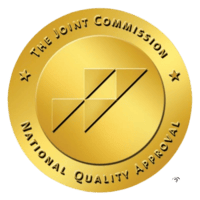Addressing the complex issue of addiction in your spouse requires a keen understanding of the subtle signs, a disposition to provide non-judgmental support, and a commitment to find viable solutions. Noticeable changes in physical appearance, behavior, and emotional stability often serve as initial indicators. Maneuvering this delicate situation demands empathy, effective communication, and informed decisions about seeking professional assistance. It is a challenging journey, yet fostering a supportive environment can significantly improve the chances of recovery. Consequently, discussing this pressing issue, exploring its intricacies, and sharing practical strategies to confront it effectively becomes paramount.
Understanding the Nature of Addiction
While it is imperative to comprehend that addiction is a complex and multifaceted disease, it’s equally important to understand that it is characterized by compulsive, uncontrollable drug seeking and use despite harmful consequences. The prevailing misconception that addiction is merely a lapse in willpower or a moral failing is not simply inaccurate but detrimental, as it may prevent people with addiction and their loved ones from seeking help. Contrary to this, addiction is a chronic, relapsing disease that alters the brain and behavior.
Adopting preventive measures is vital to tackling the issue. This includes education about the fundamental nature of addiction, fostering an environment that discourages drug misuse, and promoting healthy coping mechanisms to deal with stress and emotional turmoil. Understanding the nature of addiction is the first critical step in identifying it. It is essential to dispel addiction misconceptions and embrace preventive measures to mitigate its impact. This knowledge can empower individuals to identify potential signs in their spouse and seek necessary help.
Recognizing Physical Signs of Addiction
Physical changes, often subtle yet persistent, can serve as critical indicators of developing addiction in your spouse. These alterations are not just visible in their appearance but also manifest as addiction-related health issues. Observing excessive weight loss or gain, frequent nosebleeds, abnormal pupil sizes, or constant fatigue can signal substance abuse. Regularly falling ill due to a weakened immune system might indicate addiction. The presence of withdrawal symptoms like restlessness and nausea also makes addiction evident.
Identifying these symptoms early allows for timely intervention, though it’s crucial to remember that these signs aren’t conclusive proof of addiction. They could point to other health problems. However, if these signs are coupled with other addiction indicators, it’s advisable to seek professional help. The physical signs are a cry for help; acknowledging them is the first step towards recovery. A compassionate approach can make a significant difference in your spouse’s journey toward overcoming addiction.
Spotting Behavioral Changes
Beyond physical signs, shifts in behavior offer another lens through which to detect potential addiction in your spouse. Hidden addictions manifest as changes in routine patterns, fostering relationship strains. A sudden change in punctuality or secrecy, such as device password protection or unexplained absences, can indicate addictions. Changes in social behavior, like isolation or withdrawal, may also suggest a struggle. Equally, negligence towards work or familial duties can be a clear sign.
In all cases, it’s essential to avoid jumping to conclusions. Recognizing these behavioral changes is pivotal in addressing the problem. It’s the first move towards providing the support your spouse needs to navigate their recovery journey. Addiction is a complex issue requiring sensitive handling. Identifying these patterns can facilitate informed decisions about when to seek professional help, ensuring the conversation becomes a catalyst for change.
Acknowledging Emotional Red Flags
In conjunction with behavioral changes, emotional red flags can also serve as critical indicators of a spouse grappling with addiction. Emotional Intelligence is key to discerning these signs, which might be subtle or insidiously woven into daily interactions. Dramatic mood swings, unusual secrecy, defensiveness, and prolonged periods of depression or anxiety may indicate an internal struggle. These signs require sensitive handling, and identifying denial is critical. If your spouse dismisses concerns or rationalizes erratic behavior, they might be in denial.
It’s important to approach these red flags with empathy, patience, and a readiness to seek professional help. Acknowledging these emotional signs is the first step toward a possible solution. Effective communication is essential in these dialogues. It is about acknowledging your spouse’s feelings, validating their experiences, and showing genuine concern for their well-being. This helps alleviate their feelings of guilt and shame, illustrating your commitment to their recovery process.
Navigating Conversations About Addiction
Approaching conversations about addiction with your spouse requires sensitivity, honesty, and a well-informed viewpoint. Recognizing the symptoms of addiction is a critical first step in this process. Equally important is cultivating effective communication strategies and knowing when to seek professional help. Identifying the signs of addiction in your spouse requires careful observation, empathetic understanding, and tactful communication. Addiction prevention begins with recognizing the symptoms early on, especially for those with a genetic predisposition.
Physical changes like sudden weight loss or bloodshot eyes, behavioral shifts such as neglecting responsibilities, and psychological indicators like irritability or anxiety may point to addiction. If your spouse is exhibiting these signs with others, addressing the issue with compassion, understanding, and patience is essential. The goal is to support and guide your spouse toward recovery, not to accuse or confront. Early detection and intervention can significantly improve the prognosis and the journey towards sobriety.
Effective Communication Strategies
Mastering effective communication strategies when discussing addiction with your spouse sets the foundation for understanding, empathy, and mutual respect. The journey starts with establishing trust, an indispensable pillar of productive discussions. Empathy is equally vital, acknowledging your spouse’s feelings and validating their experiences. This helps alleviate feelings of guilt and shame and shows your commitment to their recovery process.
Effective communication also requires active listening and patience. Giving your spouse the time needed to express thoughts and responds compassionately. Seeking professional help provides a structured environment for discussing addiction. Professionals can guide you through emotional terrain while pointing toward recovery. It’s important to choose a therapist experienced in addiction counseling, understand insurance plans, and ensure continuity of care. Seeking professional help reflects a profound commitment to your spouse’s recovery.
Offering Support Without Enabling
Offering support to a spouse struggling with addiction is a delicate balance between assistance and avoidance of enabling behaviors. Understanding the delicate balance between support and enabling addictive behavior is essential in addressing addiction issues effectively. Three key indicators of enabling behavior include rescuing your spouse from the consequences of addiction, prioritizing their needs over your own to the point of self-neglect, and continually adjusting your behavior to accommodate addiction. Recognizing your enabling behavior is the first step in breaking this harmful cycle.
It’s important to explore healthy ways to help, fostering recovery instead of perpetuating the addiction. Supportive Nutrition, ensuring balanced nutrition, is vital for recovery. Exercise Encouragement is another crucial component, scientifically proven to reduce cravings and withdrawal symptoms. Managing the intricate balance necessitates setting effective boundaries. They promote healthier interactions, fostering an environment where your spouse feels safe to express their struggles and triumphs.
Exploring Professional Treatment Options
Exploring professional treatment options is essential for overcoming addiction, bringing to light therapeutic solutions designed for each individual’s needs. Understanding treatment costs as an investment in your spouse’s health and future is vital. Insurance coverage can ease financial burdens, covering outpatient services and medication-assisted treatments. Thorough research is pivotal to finding suitable treatment options. Consulting healthcare professionals for guidance is advisable, considering the addiction’s severity, substance involved, and co-occurring conditions.
While securing the right professional treatment is significant, cultivating an atmosphere of hope and patience is equally essential for successful recovery. Recovery is a journey with setbacks that are not signs of failure and often part of the process. Equip your spouse with mechanisms to prevent relapse, like support groups and therapy. The most vital part of recovery is never losing hope and recognizing time and patience are required. Maintain a positive approach, offering your spouse unconditional support for a successful road to recovery.

Final Thoughts
Recognizing addiction in a spouse requires careful observation, compassionate communication, and the will to seek professional help. It is a complex process, requiring discernment between supporting and enabling behaviors. Through an understanding of the nature of addiction, one can better identify physical, behavioral, and emotional signs, leading to more productive conversations about addiction. The journey of recovery is long and demands patience and hope, but with the right strategies and resources, healing and recovery are attainable.
At BlueCrest Detox, we’re dedicated to elevating you from the struggles of substance use to the peaks of recovery and resilience. Our expert team offers personalized, evidence-based treatment services tailored to support your unique journey toward healing. Reach out to us for the compassionate care you deserve on your path to wellness. Follow us on Facebook for ongoing support, insights, and inspiration on your recovery journey.
Frequently Asked Questions
How Can Children Be Affected by a Parents Addiction?
Children affected by a parent’s addiction often face emotional neglect, triggering profound childhood trauma. This adversity can lead to developmental issues, behavioral problems, and psychological distress, necessitating early intervention and ongoing support for best well-being.
What Legal Implications Could Arise From a Spouse’s Substance Abuse?
Spousal substance abuse can result in significant legal consequences, including divorce implications. It can lead to custody battles, financial instability, and potential criminal charges, all of which can profoundly affect the family’s overall well-being.
Are There Specific Insurance Plans That Cover Addiction Treatment?
Yes, specific insurance plans do cover addiction treatment. However, insurance eligibility and coverage vary widely. Understanding your policy’s specifics can clarify what treatment costs are covered and the extent of coverage provided.
What Self-Care Strategies Can Help Me Cope With My Spouse’s Addiction?
Self-care strategies like maintaining a healthy lifestyle, practicing mindfulness, and seeking therapy can enhance emotional resilience. Joining support groups can also provide coping techniques for managing stress associated with a spouse’s addiction.
How Can Addiction Impact a Marriage or Relationship Intimacy and Sexual Health?
Addiction can greatly impact a marriage’s intimacy and sexual health, primarily through communication breakdown and trust erosion. The addictive behaviors can create emotional distance, reducing affection and sexual desire, potentially leading to relationship dissatisfaction.




